Mickey Hardaway (2023)—A Harrowing Depiction of the Effects of Childhood Trauma

It is said we are shaped by what we experience in life. Unfortunately, life is often unfair for plenty of people. Too many go through hard times that leave them bitter and angry at the world around them, which then often leads to substance abuse or even self-harm or harm of others. Although this has been addressed in plenty of films, such as Fight Club, Taxi Driver and Joker, all those often have characters who are either seen as “badass” or even relatable, but not exactly in the good sense. But few movies truly address the troubles that these disturbed young men go through as much as writer and director Marcellus Cox’s film Mickey Hardaway.
Mickey Hardaway (played by Rashad Hunter) is a struggling young artist who is trying to make his dream of becoming an animator come true. As a child, Hardaway was frequently discouraged from pursuing his dream by his verbally and physically abusive father, while also being encouraged by his teacher from the local recreation center to pursue his passion. Upon graduating high school and leaving home, Mickey would begin as a cartoonist. Things begin to go well for him, with Mickey getting his work published in the paper and even meeting a girl he likes named Grace (played by Ashley Parchment). However, after he loses his job, he goes down a dark spiral. At the encouragement of Grace, Mickey begins seeing a psychologist, Dr. Cameron Harden (played by Steve Cofield Jr). As he continues his therapy sessions and opens up, he becomes more and more unhinged.
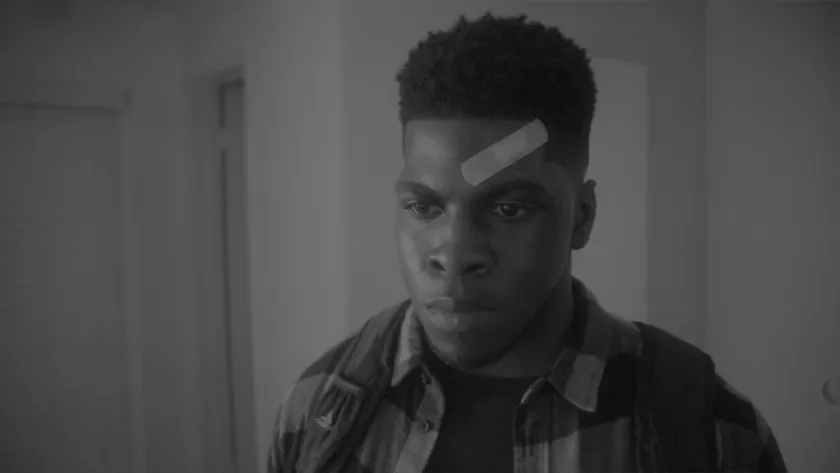
Unlike most indie films that I have reviewed so far, Mickey Hardaway is shot almost completely in black and white. And it wasn’t until halfway through when I realized why. We are seeing the world completely through the eyes of Mickey himself. To him, everything is colorless and bleak due to all of the trauma he endured in life. In fact, the only time we actually see color is when he is reminiscing on his first date with Grace and how happy she made him feel. I really appreciate how director Marcellus Cox really used color grading to further tell the story of a depressed young man. Not many directors do this, often relying on grungy shades of orange, green or blue. It just goes to show how every aspect of filmmaking, even more technical ones such as sound, cinematography and color grading are all effective tools to properly tell a powerful story.
Something I’d like to touch on is how the film begins in media res. In other words, the film’s beginning actually takes place towards the end chronologically. While some films use this to amazing results, such as Citizen Kane, John Wick and Inside Llewyn Davis, other films are not that fortunate. In the case of Mickey Hardaway, it definitely fits the former. Not only is the film presented in a non-linear manner, it effectively uses flashbacks and properly meshes them with what’s going on in the present. We see how every traumatic event affected Mickey and how it drove him closer to his actions in the climactic third act. I love how masterfully every scene managed to flawlessly connect with the next scene. To me, this truly feels like a story unfolding right before your eyes, with every scene filled with raw emotion and feels like a small piece to a big puzzle. This is something that many big budget films today fail to do, so as an indie film, I am extremely impressed.
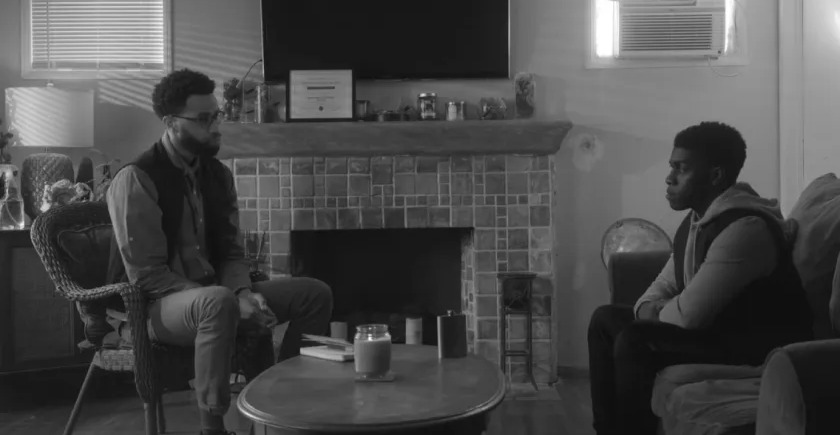
Now I want to talk a bit about the overall message, as Mickey Hardaway is thematically one of the heaviest films that I’ve reviewed so far. To me, I find Mickey as a character extremely relatable: a young man who has great aspirations and talent only to be a victim to his circumstances and trauma. At first, I felt as if he was going to be another tokenized gifted black kid who rises to greatness after enduring a hard life. However, it isn’t until halfway through when the film flips all of my expectations. Not only does it accurately represent the mindscape of a traumatized young man, but also blends in clever social commentary on race relations, mental health and capitalism. We see how Mickey struggles as a black artist who even gets taken advantage of in his field by a corrupt system.
But despite the well-written script, tightly-knitted story and masterful use of technical filmmaking, a film cannot stay afloat if the acting is subpar. Fortunately, Mickey Hardaway is not shy of any bad performances. Rashad Hunter brings a perfectly balanced cadence of light and darkness to the role of Mickey that reminds me of actors such as Christian Bale in the Christopher Nolan Batman films. You can feel his love and passion for art and drawing, as well as his inner darkness present in his alcoholism and anger outbursts. However, it isn’t until we see the dark side of Mickey where Hunter’s acting truly shines. The best way I can describe his portrayal of Mickey’s darkness is nothing short of terrifying and harrowing, reminiscent of Daniel Kaluuya in Widows. This is his first starring role in a feature film and he comes out swinging! I would not at all be surprised to see Rashad Hunter as a future Academy Award winner for Best Actor!
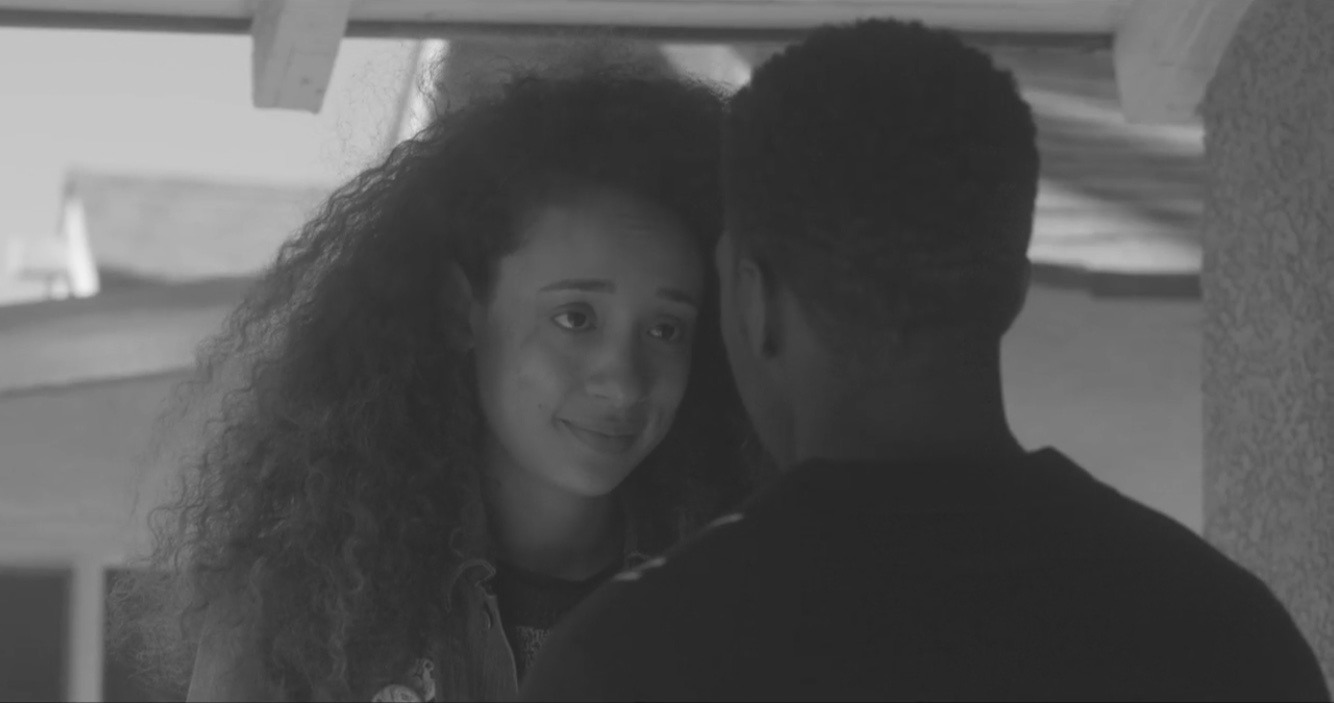
Compared to most films that I have reviewed, Mickey Hardaway is a film that while it feels similar to other social commentaries such as Taxi Driver or more recently Joker, feels distinctly different from them. While the former two all have a protagonist that some moviegoers either look up towards or feel associated with, Mickey Hardaway as a character truly comes across as what he should be: an example of how if society fails to embrace a child, he will burn it down to feel that warmth. Despite the ending feeling a bit on the nose at times, I was still left completely speechless. With strong performances from every actor, along with stellar writing, cinematography and a harrowing message, Marcellus Cox’s Mickey Hardaway is not only a film I will continue to watch, but one that I recommend everyone to go out and experience!





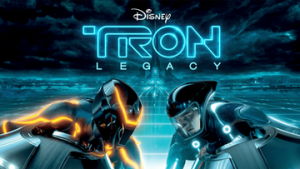
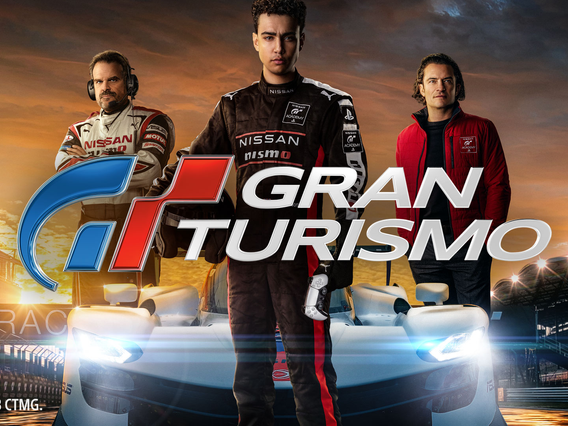

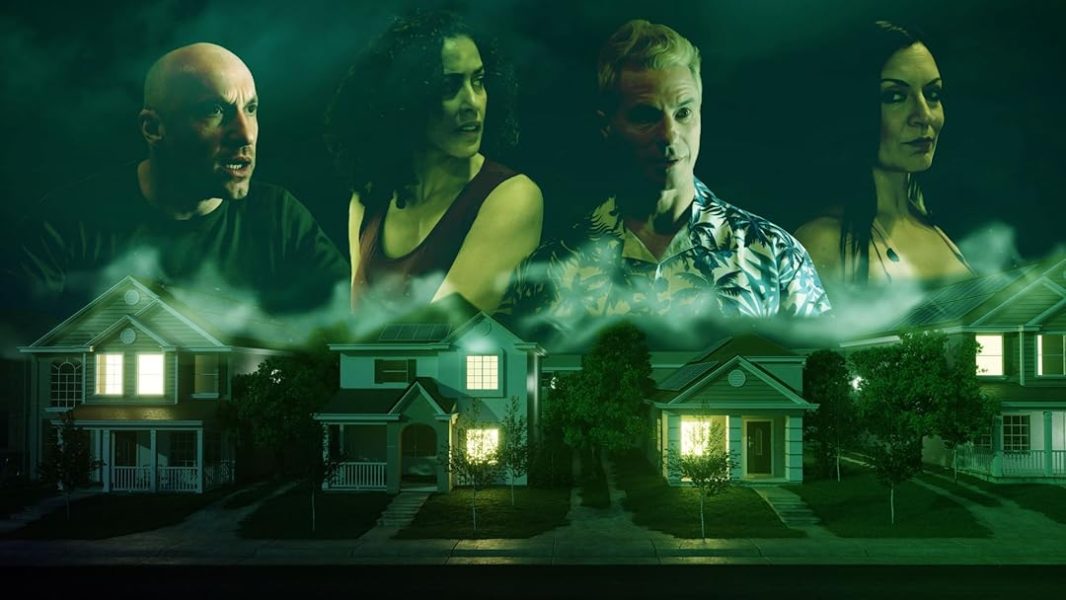
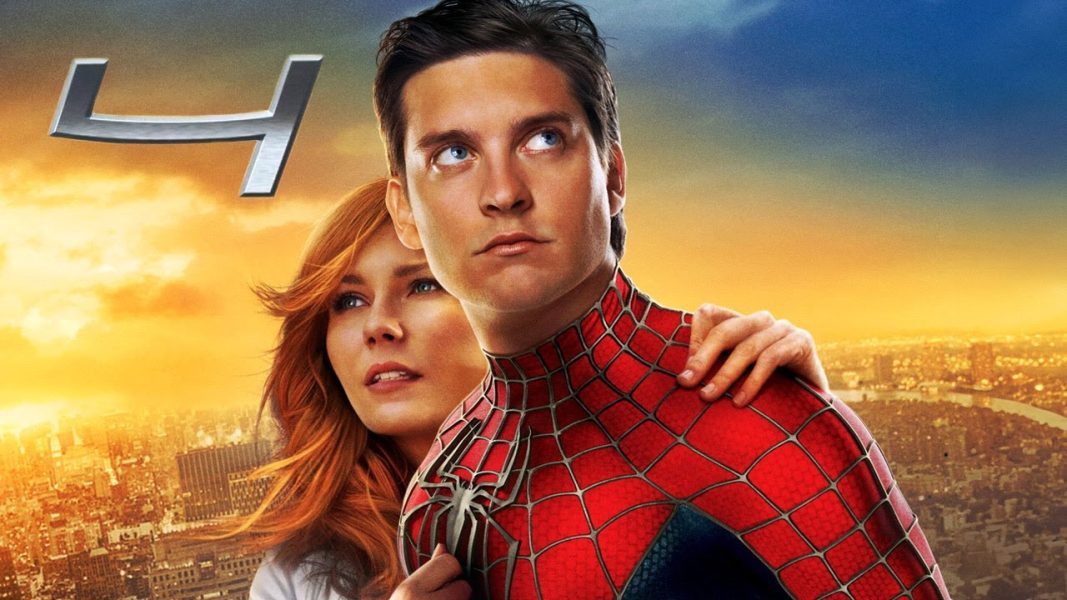



Good to see your new post! It sounds an interesting film.
sounds a very interesting film!